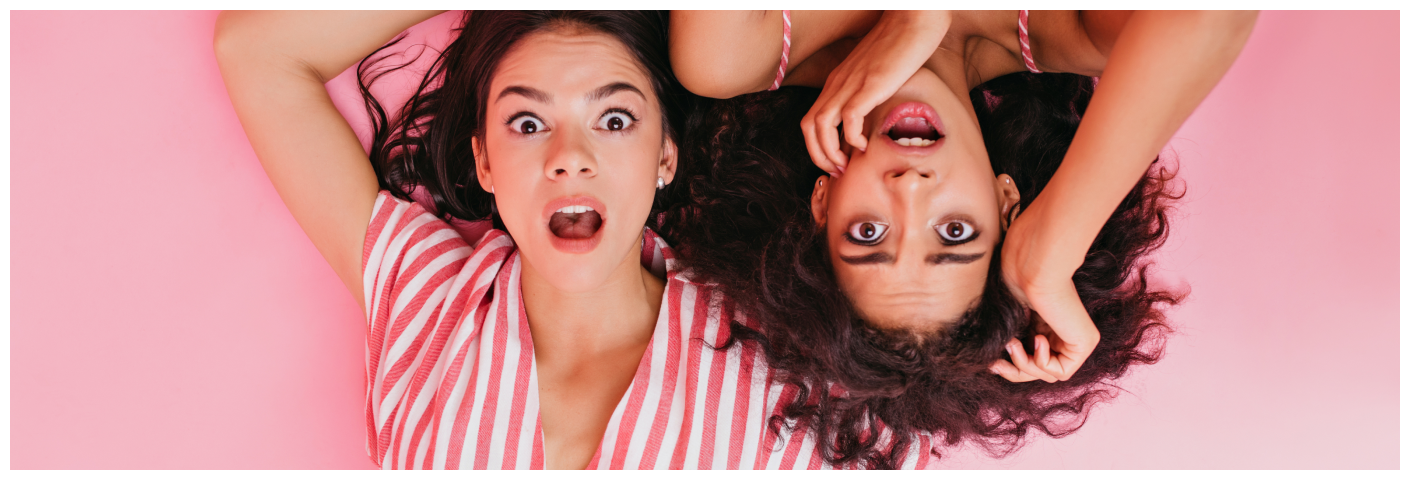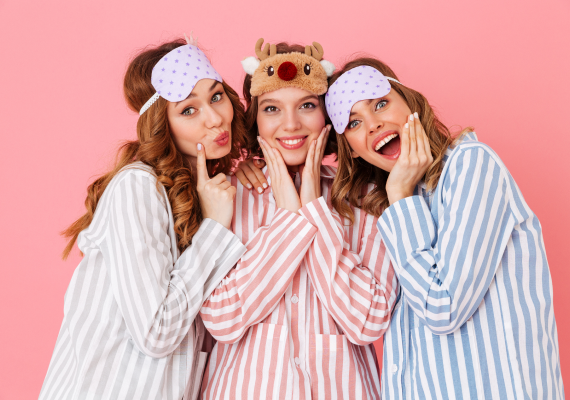MY FIRST PERIOD
There are so many moments in life that astounds us. They say that life is not the sum of the breaths we take but the moments that take our breath away.
The first period is such a breathtaking, such a special moment in our lives. The first period that triggers our physical change, or in medical terms, menarche, initiates the fertility cycle of us women.
We would like to share a few things about this period, which should be lived and celebrated as an experience, leaving aside societal pressures, taboos, and worries.
Let us look at it together.
When will I get my first period?
The average age for the first period, or menarche, is 12.5 years, but the first period can occur as early as 10-14 years.
The first period at the age of 8 to 10 years is considered early, and the one at 14 to 16 years is considered late.
In other words, the first menstrual period at the age of 8-16 years is considered healthy and normal (unless there are other physical or psychological symptoms or hormonal imbalances).
It is not right to compare ourselves to others before our first period, as our hereditary characteristics will lead to different results for each of us. Each young girl's process is unique to her. If we are concerned, it is important to consult our families first and then a specialist.
What is the first menstrual bleeding like?
The first time we get our period, it is usually not that heavy, so do not worry about it. It is typically noticeable as a light spotting.
The color of menstrual blood can also vary from person to person.
Before your first period, it is normal for normal vaginal discharge to turn a brown color, followed by bright red bleeding.
We, women, excrete about 30-40 ml of blood and tissue during our period, which means about 4-5 tablespoons. As mentioned earlier, the bleeding is minor during the first period.
If the bleeding exceeds this amount, it is called "heavy bleeding" and needs to be examined by a gynecologist as it may indicate medical conditions.
How long does the first menstrual bleed last?
The duration of the first period can also vary from person to person.
The first period lasts 2 to 3 days for some young girls, while it can last up to a week for others. If you notice heavy bleeding that lasts longer than a week, we recommend that you see a gynecologist.
When is the second period after the first?
A woman's normal menstrual cycle lasts 21-35 days. However, it is perfectly normal to have irregularities at the beginning of the menstrual cycle.
The hormones estrogen and progesterone, which ensure the continuation of the menstrual cycle and fertility, may not yet function regularly and adequately. For this, we need to give our bodies a little more time.
This is why we may experience irregularities for the first 1-2 years after our first period.
It is a good idea to write down the day of your first period and how long it lasted to track an irregular cycle.
Is pain normal during the first period?
Period pain is the pain we feel due to contractions in our uterus trying to remove the excess blood and tissue inside.
We can feel this pain in our abdomen, groin, and sometimes in our waist.
In addition, symptoms such as hot flashes, colds, headaches, and restlessness related to hormonal changes are quite normal.
By adopting small but effective habits that you can use throughout your life to reduce menstrual pain, you can relax during your fertility cycle.
What should I do when I first get my period?
First, remember that you're in one of the most beautiful moments of your life and celebrate yourself!
From the past to the present, many cultures have held celebrations for young girls who have had their first period, and various ceremonies have been held to transition into puberty. Since you are experiencing one of these important steps in your life, you deserve a celebration.
Since bleeding is often a sign of something wrong with a person, it is normal to be alarmed when we first see menstrual blood.
On the contrary, menstrual bleeding is not a sign of something wrong, but that your uterus and ovaries are working normally.
Do not worry about it, relax and make sure that everything is fine.
Since there is nothing to be ashamed of and it is a cause for celebration, it would be appropriate to tell your parents or another older person that you had your period for the first time for support.
What you need to do physically are very simple things:
If you notice when you first start bleeding that the blood isn't only on your underwear but also your body, you can wipe it off with a wet washcloth or take a shower.
You can put a Molped in your clean underwear and go on with your day with a smile on your face.
The first period is such a breathtaking, such a special moment in our lives. The first period that triggers our physical change, or in medical terms, menarche, initiates the fertility cycle of us women.
We would like to share a few things about this period, which should be lived and celebrated as an experience, leaving aside societal pressures, taboos, and worries.
Let us look at it together.
When will I get my first period?
The average age for the first period, or menarche, is 12.5 years, but the first period can occur as early as 10-14 years.
The first period at the age of 8 to 10 years is considered early, and the one at 14 to 16 years is considered late.
In other words, the first menstrual period at the age of 8-16 years is considered healthy and normal (unless there are other physical or psychological symptoms or hormonal imbalances).
It is not right to compare ourselves to others before our first period, as our hereditary characteristics will lead to different results for each of us. Each young girl's process is unique to her. If we are concerned, it is important to consult our families first and then a specialist.
What is the first menstrual bleeding like?
The first time we get our period, it is usually not that heavy, so do not worry about it. It is typically noticeable as a light spotting.
The color of menstrual blood can also vary from person to person.
Before your first period, it is normal for normal vaginal discharge to turn a brown color, followed by bright red bleeding.
We, women, excrete about 30-40 ml of blood and tissue during our period, which means about 4-5 tablespoons. As mentioned earlier, the bleeding is minor during the first period.
If the bleeding exceeds this amount, it is called "heavy bleeding" and needs to be examined by a gynecologist as it may indicate medical conditions.
How long does the first menstrual bleed last?
The duration of the first period can also vary from person to person.
The first period lasts 2 to 3 days for some young girls, while it can last up to a week for others. If you notice heavy bleeding that lasts longer than a week, we recommend that you see a gynecologist.
When is the second period after the first?
A woman's normal menstrual cycle lasts 21-35 days. However, it is perfectly normal to have irregularities at the beginning of the menstrual cycle.
The hormones estrogen and progesterone, which ensure the continuation of the menstrual cycle and fertility, may not yet function regularly and adequately. For this, we need to give our bodies a little more time.
This is why we may experience irregularities for the first 1-2 years after our first period.
It is a good idea to write down the day of your first period and how long it lasted to track an irregular cycle.
Is pain normal during the first period?
Period pain is the pain we feel due to contractions in our uterus trying to remove the excess blood and tissue inside.
We can feel this pain in our abdomen, groin, and sometimes in our waist.
In addition, symptoms such as hot flashes, colds, headaches, and restlessness related to hormonal changes are quite normal.
By adopting small but effective habits that you can use throughout your life to reduce menstrual pain, you can relax during your fertility cycle.
What should I do when I first get my period?
First, remember that you're in one of the most beautiful moments of your life and celebrate yourself!
From the past to the present, many cultures have held celebrations for young girls who have had their first period, and various ceremonies have been held to transition into puberty. Since you are experiencing one of these important steps in your life, you deserve a celebration.
Since bleeding is often a sign of something wrong with a person, it is normal to be alarmed when we first see menstrual blood.
On the contrary, menstrual bleeding is not a sign of something wrong, but that your uterus and ovaries are working normally.
Do not worry about it, relax and make sure that everything is fine.
Since there is nothing to be ashamed of and it is a cause for celebration, it would be appropriate to tell your parents or another older person that you had your period for the first time for support.
What you need to do physically are very simple things:
If you notice when you first start bleeding that the blood isn't only on your underwear but also your body, you can wipe it off with a wet washcloth or take a shower.
You can put a Molped in your clean underwear and go on with your day with a smile on your face.



